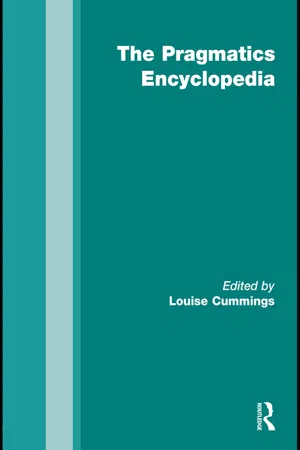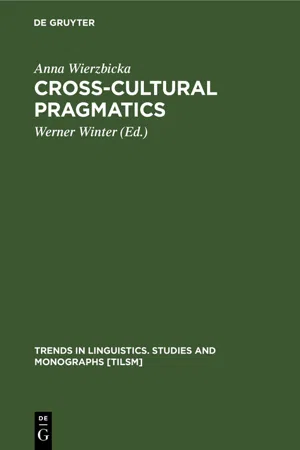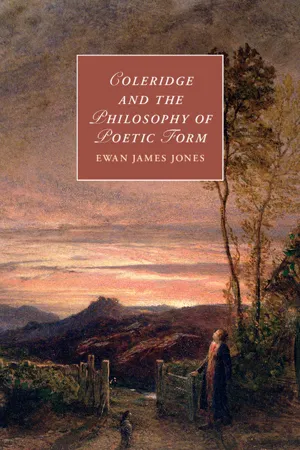Languages & Linguistics
Tautology
Tautology is a linguistic term that refers to a statement that is always true, regardless of the circumstances. It is a redundancy in language where a statement is repeated in different words, but the meaning remains the same. Tautologies are often used for emphasis or to clarify a point.
Written by Perlego with AI-assistance
Related key terms
1 of 5
3 Key excerpts on "Tautology"
- eBook - ePub
- Louise Cummings(Author)
- 2010(Publication Date)
- Routledge(Publisher)
T Tautology The notion of Tautology enters the philosophy of language with Wittgenstein ’s Tractatus Logico-Philosophicus (Wittgenstein 1922). There Tautology is defined as a truth-functional proposition that is ‘true for all the truth-possibilities of the elementary propositions’ (4.46, 34). In the contemporary literature, the applicability of the term has been expanded beyond sentential logic to include any proposition that is true as a matter of form, especially those that are true as a result of syntactic repetition, e.g. sentences of the forms ‘AisA’, ‘All As are As’, ‘A or not A’ or ‘If A, then A’. Following the Wittgensteinian line, all tautologies are considered to be semantically vacuous, that is, true but devoid of content. The use of utterances of tautological form in non-vacuous speech acts was noted by Grice (1975), who contends that statements like ‘Women are women’ or ‘War is war’ are ‘totally noninformative and so, at that level, cannot but infringe the first maxim of Quantity in any conversational context’ (33). The speaker’s choice to utter a particular Tautology in the context of a given conversation then forms the basis of an implicature which leads the listener to infer non-vacuous content when confronted with such an utterance. Some theorists have worked on the details of the Gricean pragmaticist approach to tautological utterances based on the maxim of quantity (Levinson 1983; Fraser 1988; Autenreith 1997). Tautologies say nothing and, since a cooperative speaker would always strive to make his conversational contributions meaningful, the meaning requires an inference on the part of the listener. Levinson (1983) argues that since one can assume the speaker is making as informative a contribution as required, the speaker’s utterance takes on a ‘dismissive or topic-closing quality’ (111). Nothing was said because there is nothing to say - eBook - PDF
Cross-Cultural Pragmatics
The Semantics of Human Interaction
- Anna Wierzbicka, Werner Winter(Authors)
- 2020(Publication Date)
- De Gruyter Mouton(Publisher)
English nominal tautologies: semantic representations 403 smierc 'A goat has to die once', or by the saying Co ma wisiec nie utonie 'What is meant to hang will not drown', both of which express a similar sentiment of reckless determination. The Spanish sentence can be used by an idle person who doesn't want to worry about the future, but its literal Polish equivalent would not be so used. Facts of this kind show, it seems to me, that the use of 'tautological constructions' and 'tautological sayings' in different languages is partly conventional and language-specific — even though it can also be ex-plained, to a large extent, by language-independent 'Gricean' principles. 2. English nominal tautologies: semantic representations My main claim concerning English nominal tautologies is this: English has not one, but many, productive tautological patterns conforming to the formula (ART) N. be (ART) N.. If we want to state the meaning of these patterns accurately, we must recognise this plurality of types, and state the meaning of each one separately. In some cases, formal clues enable us to separate the different types. In other cases, the form of two different tautological patterns is the same, yet they cannot be collapsed under a simple semantic representation because their mean-ings differ in ways which cannot be accounted for in terms of context or lexical differences. For this reason, some tautological sentences are ambiguous. Thus A mother is a mother can mean either that a mother can always be expected to act in a motherly way (even if she seems different from other mothers), or else that one has obligations toward one's mother. Similarly, A steak is a steak can mean either that there isn't much difference in value between one steak and another (one is neither much better nor much worse than another), or else that all steaks are undeniably and reliably things of high value. - eBook - PDF
- Ewan James Jones(Author)
- 2014(Publication Date)
- Cambridge University Press(Publisher)
I do, however, wish to press her claim that Tautology bears affinities with prosodic effects including ‘the creeping growth of repetitive sound into surrounding words’. 44 This is undeniable. Yet Tautology, unlike acoustical repetitions (refrains), or the internal rhyme that Russell also mentions, can never – at least for us moderns – be exclusively sonorous. Logical equivalence always presses a cognitive claim: in the case of Wordsworth’s ‘The Thorn’, a fuller realisation of its central protagonist. Coleridge, too, acknowledges the cognitive claim from which tautol- ogy has become inseparable, as in his famous dismissal of The Vanity of Human Wishes. Contrasting the opening unfavourably to Dryden’s clipped translation of Juvenal’s tenth satire, he writes that Dr Johnson has swelled and expanded this expression into the following couplet: – “Let observation with extensive view, Survey mankind, from China to Peru;” Vanity of Human Wishes mere bombast and Tautology; as much as to say, “Let observation with extensive observation observe mankind extensively.” 45 How could Tautology then move beyond this ‘mere’? Notwithstanding Coleridge’s animus towards syllogistic logic, an 1811 notebook entry suggests one answer, in terms that recall our discussion of affectivity in Chapter 2. Coleridge speaks of: that Law of Passion which inducing in the mind an unusual activity seeks for means to waste its superfluity – in the highest & most lyric kind, in passionate repetition of a sublime Tautology (as in the Song of Debora). [‘At her feet he bowed, he fell, he lay down; at her feet he bowed, he fell; where he bowed there he fell down dead.’] 46 In what follows, I aim to trace the conditions under which Tautology becomes ‘sublime’. Paul Hamilton sets the terms for self-identity rather too loosely when he claims that ‘[i]n a theological context, Coleridge, like Schelling, wishes to refute any higher criticism that historicizes or relativizes the truth of Christian doctrine.
Index pages curate the most relevant extracts from our library of academic textbooks. They’ve been created using an in-house natural language model (NLM), each adding context and meaning to key research topics.


